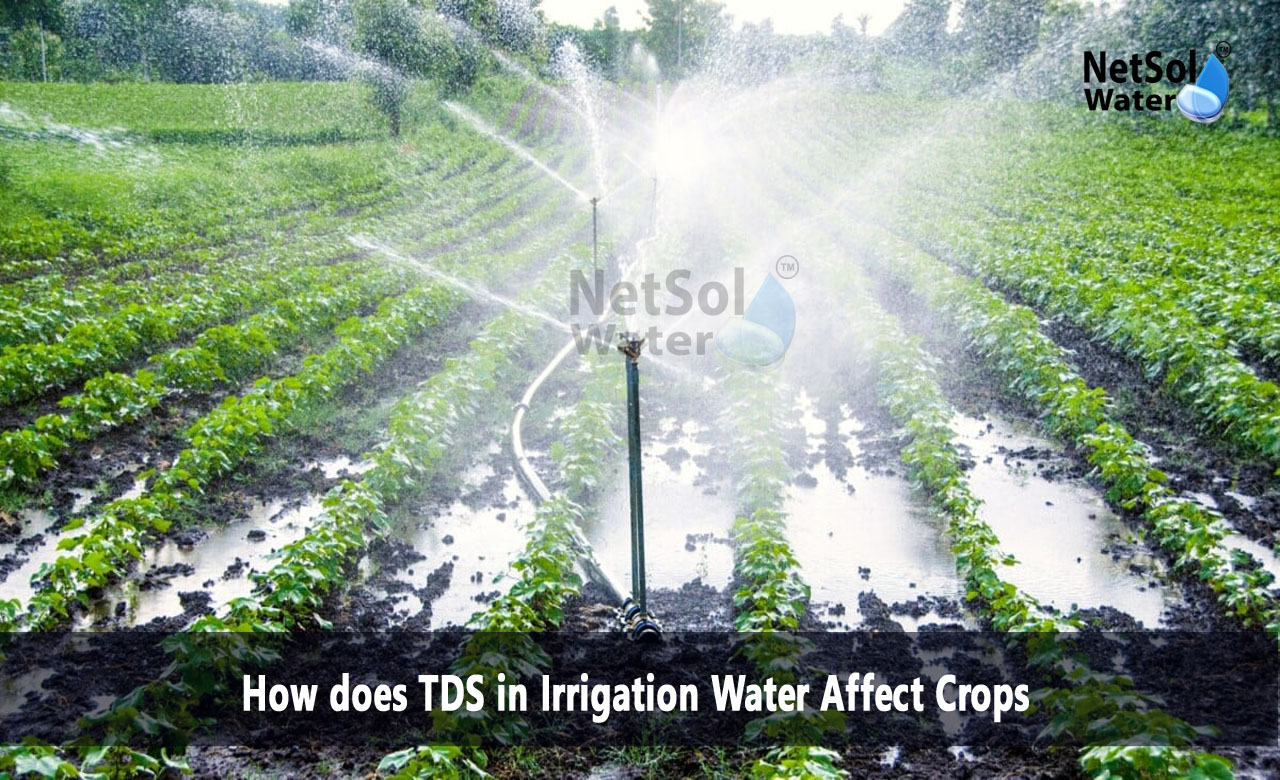How does TDS in Irrigation Water Affect Crops?
Total dissolved solids measure salts, minerals and small organic compounds that water holds in solution. High TDS changes the soil solution and it makes roots work harder to take up water and nutrients. Farmers use TDS as a quick sign that water quality needs further checks and that irrigation choices must change.
What is TDS and why it matter?
TDS gives a single value for the total dissolved material in water. Farmers use conductivity meters in the field and labs when they need a detailed analysis.
Main components that matter
Salts such as sodium chloride, calcium and magnesium form much of the TDS value. Dissolved nitrates phosphates and organic matter also change the mix and the effect on plants.
Why TDS guides irrigation?
High TDS changes how water behaves in the root zone. Roots must overcome stronger osmotic pressure when salts rise and plants then show stress in growth and in water use.
Common sources of TDS in irrigation water
Natural geology and groundwater
Deep groundwater can carry minerals that dissolve from rock and soil. Dry climates concentrate those minerals as evaporation removes water.
Agricultural runoff and soil salts
Repeated irrigation without good drainage moves salts toward the surface and creates a higher TDS in reused water. Fertilizer and crop residue add ions to drainage and to surface supplies.
Urban and industrial inputs
Surface water that runs through towns or near industry can pick up salts and organics that raise TDS. Treated wastewater also adds dissolved compounds that change the water mix.
How high TDS affects soil and plant physiology?
Osmotic stress and water uptake
When TDS rises the soil solution becomes more concentrated and roots must work harder to draw water. Plants close stomata and slow growth when they face consistent osmotic stress.
Ion imbalance and nutrient uptake
A high share of sodium and chloride in the mix pushes calcium and magnesium from soil exchange sites. That change lowers nutrient availability and it harms root function and enzyme action.
Soil structure and microbial life
Excess sodium breaks soil aggregates and reduces pore space. Poor structure lowers aeration and it weakens beneficial microbes that help plants access nutrients.
Effects on crop yield and quality
Reduced germination and early growth
Seeds need a favourable water potential to take in moisture. Salty soil stops some seeds from swelling and germination rates fall and young seedlings suffer stunted root systems.
Slower growth and lower yield
Chronic high TDS slows plant growth and it reduces flowering and fruit set. Harvest weight falls and quality traits such as taste texture and storage life can decline.
Crop-specific tolerance
Some crops such as barley, sorghum and date palm tolerate higher TDS. Other crops such as beans lettuce and potato need low salt levels to achieve good yield. Choosing tolerant varieties helps manage risk in marginal water.
Testing, monitoring and mitigation
Sample water and soil at several points and at several depths. Use a calibrated meter for quick checks and then send samples to a lab for a full ion profile to guide fixes.
Ways to reduce TDS impacts?
Improve drainage and flush salts with better quality water when that option exists. Apply gypsum to replace sodium on soil exchange sites and add organic matter to rebuild soil structure and function.
Irrigation practice and crop choice
Use drip systems to target water to roots and to limit salt build up at the surface. Rotate with salt tolerant cover crops and adjust fertilizer to avoid adding unnecessary dissolved ions.
Conclusion
TDS in irrigation water affect crops showing up in seed failure, in slowed growth and in lower harvest quality. The number acts as an early warning that asks for lab tests soil care and changes in irrigation practice. Good management links regular TDS checks to soil testing and to crop selection and to targeted fixes. If TDS readings rise, take water and soil samples and seek expert advice for a plan that fits your farm. Contact us for more information or request a consultation to test your irrigation water and to protect your crop results.
Contact Netsol Water at:
Phone: +91-9650608473, Email: enquiry@netsolwater.com



